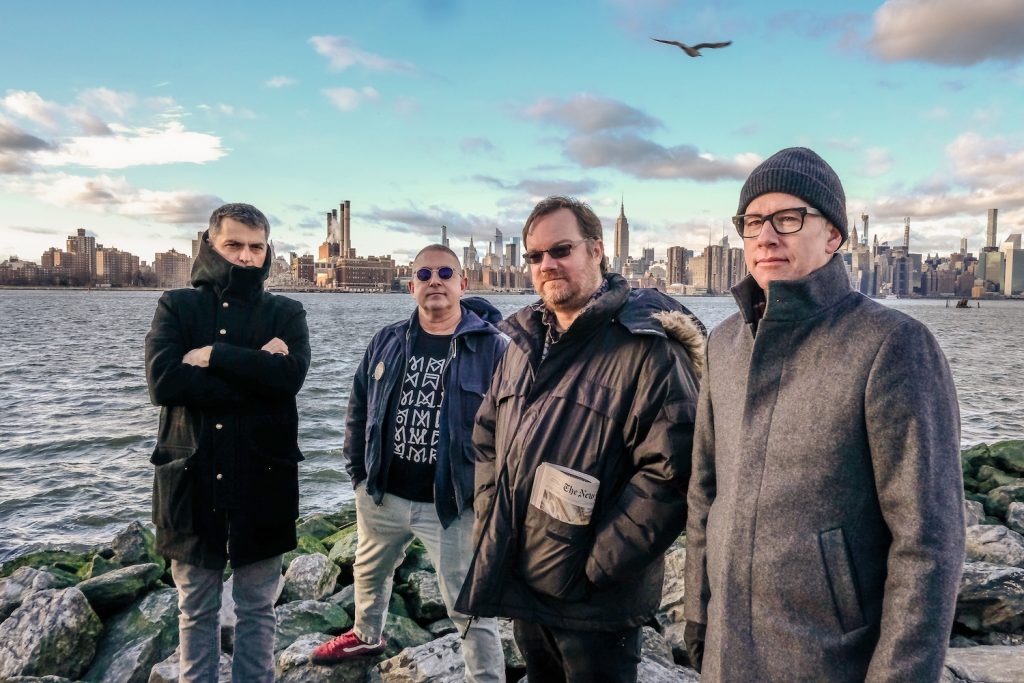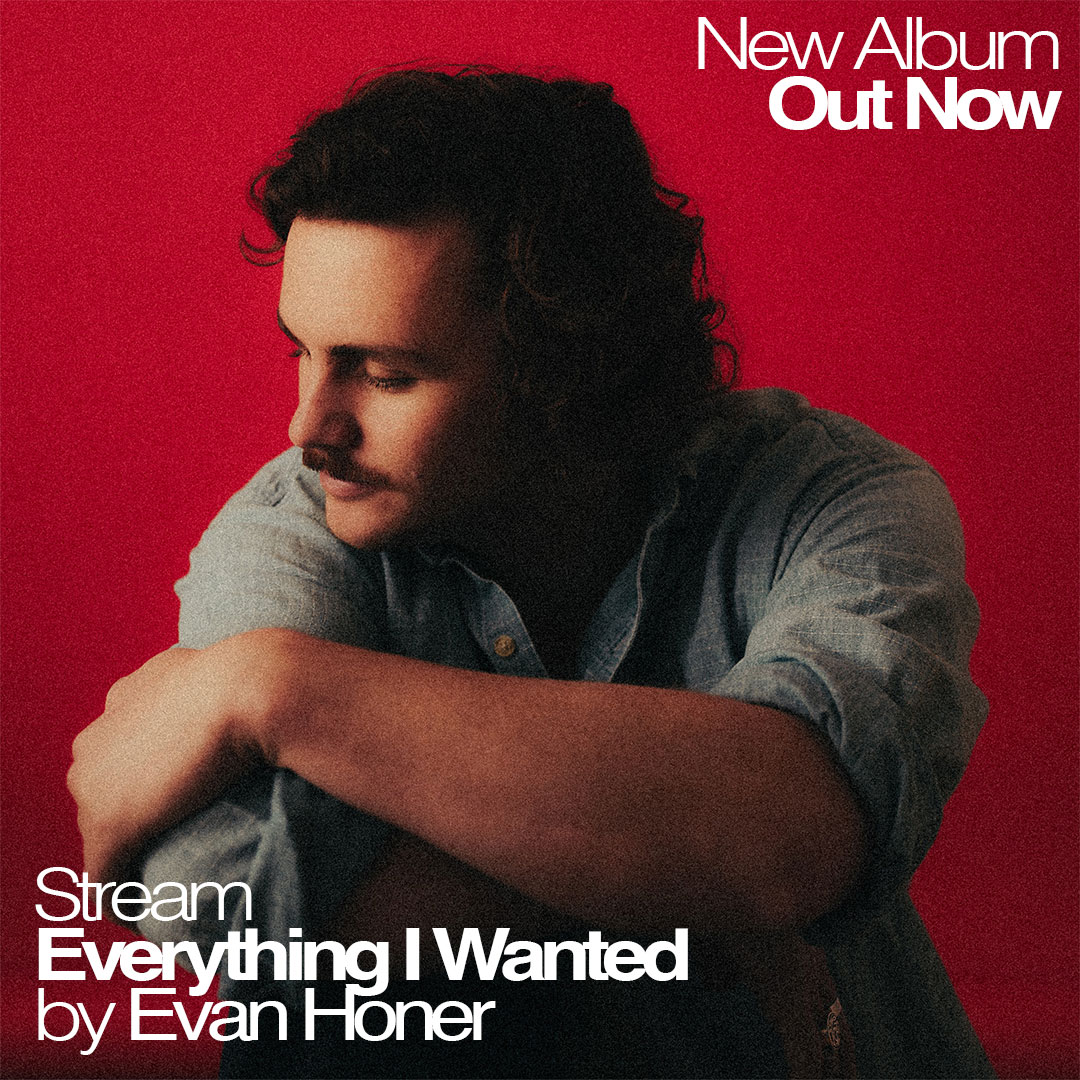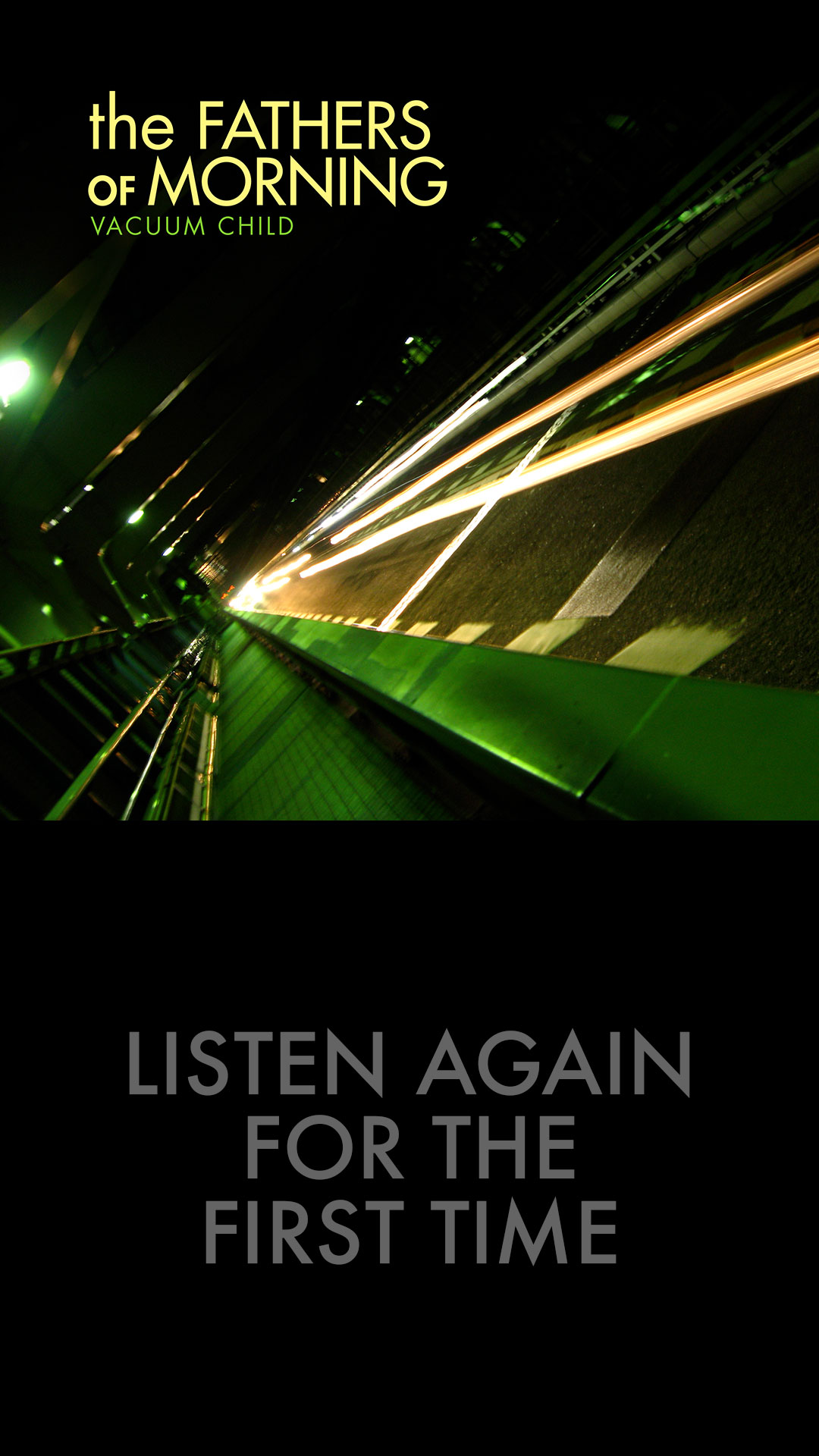
Rotting Teeth In The Horse’s Mouth (Ernest Jenning) is SAVAK’s fourth LP of jittery, yet insanely catchy, post-punk-inflected rock. As with the previous efforts, Rotting Teeth holds 10 tunes equally split among band co-leaders Michael Jaworksi and Sohrab Habibion—and like those outings, it’s start-to-finish outstanding. We touched base with Jaworski and Habibion to talk about the new record, their songwriting process and living in New York City during a pandemic. (Habibion, unfortunately, was infected with the invisible enemy but has recovered.)
We’re all kind of tired of talking about COVID-19 at this point, but I have to ask you guys about it since you’re in New York City. How are you doing? How are your families?
Jaworski: My family is doing OK. Other than occasionally making trips to our semi-safe building roof for fresh air and sun, my wife, three-year-old daughter and I have not left our building for over three weeks now. We live in Manhattan and haven’t felt like it’s worth the risk to leave our apartment. My wife’s parents live next door to us in the same building, and we don’t want to jeopardize their health, either. We’ve somehow been able to secure a weekly food delivery and are taking all precautions. We were all sick for the first two weeks with something that shared a lot of common symptoms as COVID-19, but fortunately we’re all fine now and who knows what it was. We’re struggling like so many other people, and the conditions of living in a small, one-bedroom apartment with a high-energy three-year-old is a challenge. My wife still has her job, so we’re better off than many. I have so much appreciation for all of the health-care workers risking their lives to save people and improve the collective health of us all.
Habibion: I actually had the ‘rona, and it was a very odd two weeks of self-quarantine in my sliver of a home office in our apartment. While I was lucky that the fever wasn’t too extreme, the muscular pain was more intense than anything else I’ve experienced. It literally hurt to move at all. I felt like I’d been hurled down a flight of stairs and my whole body was bruised. My wife delivered food and water to me, and I only got up to use the bathroom. For about a week after I’d otherwise recovered, the fatigue was still overwhelming, and my sense of taste and smell was considerably dulled. But I’m OK now, and thankfully neither my wife nor our son got sick. We live across the street from a large park, so I go on daily walks to get fresh air and let my mind wander. I’ve also used the time to transfer live recordings of old bands I was in and edit the videotapes I shot of hardcore bands playing in the D.C. area in the mid-’80s. It’s been a fun distraction and has also put me back in touch with some folks I haven’t spoken with in years.
Being in the “hot zone,” what are your reflections on what you’ve seen? Sohrab, you mentioned in an email how you went for a walk in the park wearing a mask and how weird it all seemed.
Jaworski: We have a nice view from our roof and have been enjoying it. We’re watching the few planes land in La Guardia and the trash barges move on the East River. We filled a bird feeder on our fire escape and watched the birds decimate the seed for a week. We attempted a walk a week ago, but there were still so many people on the sidewalks. It felt like we were dodging zombies, and it was so stressful.
Habibion: Well, aside from wanting to yell at the joggers to cover their stupid fucking faces, it’s been a mix of seeing people who are trying to be responsible citizens while doing small things to maintain their sanity, and also witnessing far too many folks who are behaving in remarkably cavalier ways considering the circumstances we find ourselves in. Mainly this just affirms my belief that the human condition is absurd. We’re willing to submit to comically make-believe things like God and patriotism and the stock market but somehow unable to do a thing as simple as wearing a mask to slow the spread of an infectious disease that’s already killed more than 95,000 people in a matter of a few months. Is anyone going to the bar? I’d love another beer.
How odd does it feel to be releasing an album right now?
Jaworski: It sucks. Canceled tour dates are a bummer and a new reality that makes anything but survival feel insignificant. That said, I’m still grateful for music and art, and it’s helping my sanity in these weird times. We poured a lot of ourselves into the new record, and I truly hope it can be a source of joy, or an escape for folks right now.
Habibion: Less than ideal? For a band like us, I’m not sure it’s a huge deal. I’d like to think that for the kind of people most likely to be interested in the music we make, it doesn’t matter so much if they hear us or find out about us when a particular album comes out. At this point, we will have four LPs, an EP and a couple of seven-inches out in the world. If it’s your thing, we’re here! If not, no biggie; there’s no shortage of other low-stress/hi-res jams to cram onto your Zune or Pono or whatever.
The LP’s title comes from a lyric in Sohrab’s song “Listening” (“Rotting teeth in the horse’s mouth/The rats have left, they’re flying south/ White sand beaches, banker’s holiday/With their wives at home, the dogs will stray”). That’s some pretty strong imagery. What was the inspiration behind it?
Jaworski: The title comes from a crazy dream I had with horses and rotting teeth. I don’t remember the context of the dream, but it left an impression. I woke up with a very vivid picture in my head of this decaying horse face and somehow remembered it and managed to translate it into something meaningful in our context. I do believe it’s a subconscious reflection of our times. I’ll leave the rest up to everyone’s personal interpretation.
Habibion: The structure of that song is such that the first chorus isn’t really a chorus. The second chorus, which is also the outro, is where you get the repeated, chorus-type vocal. But we felt like the first chorus still needed a voice, so we came up with the idea of getting Scott (McCloud of Girls Against Boys) to talk something over it. Michael wrote those lines for him, and I think they fit his speaking voice perfectly. I also love that they nod to the album title.
What tour dates did you have to cancel due to COVID-19?
Jaworski: Unfortunately, we had to cancel a tour of the U.K. this May and dates in the U.S. supporting Archers Of Loaf, as well as our record-release show in Brooklyn. Everything is up in the air now, so we have no idea when we’ll be able to make them up, but we will. We’re bummed we can’t play shows right now.
Habibion: I’m looking forward to having this pandemic in our collective rear-view window for many reasons, including being able to spend time with other people and experience live music together. Our tours are a lot of fun, and I can’t wait to reschedule those U.K. shows and also the Archers Of Loaf gigs.
After badgering you to play Chicago, you finally did last year—and I had to miss it due to work travel. Can you confirm that it was a bad show and I didn’t really miss anything? Also, please come back.
Jaworski: Truly our worst show ever, only because we played with Mint Mile and they’re so good that anyone playing with them looks like chumps.
Habibion: Do you like mimes? Neither do we … and that’s what our set was like. Trapped inside an invisible box for 35 minutes. It makes me shiver just to think about it. In all seriousness, Mint Mile were terrific and their new record is something special. Speaking of Chicago and new records, Poison Arrows, who also played that night, have a great new album coming soon. And the new FACS full-length, Void Moments, is incredible. You have to listen on headphones to feel the complete immersive experience.
Most, if not all, of your songs seem political, even if not overtly. Maybe it’s just the imagery in the lyrics, or the sort-of jittery music, but there’s an angst or an edge to it all. Maybe it’s political or maybe it’s more personal, but that’s how I hear your stuff. How off the mark am I in that assessment?
Jaworski: I think we’re very politically aware, sensitive and sympathetic to the world around us. It’s part of who we are as people, and it comes out in our songs. The lyrics are reflections, observations and emotional pleas. We just want people to be good to one another, but unfortunately it doesn’t always work that way. Sometimes you gotta spill your guts, you know?
Habibion: Perhaps less overtly political than about politics. What I mean is that they’re not temporal in a political way but more steeped in ideas about conflict and power. Michael has a really nice way of writing lyrics that feel very personal and you can relate to as a listener even if they may not be specifically accurate to his life. My words can be a bit ranty and abstract, but that kind of suits my voice more. You know the guy in the park who’s trying to keep his tinfoil hat in place despite the east-west breeze and the off-leash dogs nipping at his ankles? Those are my lyrics.
Last time we talked, we discussed your Bob Mould/Grant Hart-type process of alternating tracks on each record. Let’s go into that a bit further. You each have five tracks on each album. How did you decide on that number?
Jaworski: From the beginning, the format of this band has been very collaborative, and Sohrab and I have always wanted to share things equally. I guess you could say it’s become a predictable thing, but it’s also just more exciting this way. It strips away a lot of the ego and just makes it more fun. Let’s see what you got! I personally think it’s defined the band in a really cool way. I love it.
Habibion: Previously having only been in bands that had one main singer, I really liked the idea of switching it up. It adds more variety and makes it harder to be pinned down as a particular thing, which appeals to me. With this record, we started out with 16 songs, eight from Michael and eight from me, whittled it down to 14, which we recorded, and then figured out the 10 that worked together most cohesively. It’s also kind of fun to work with alternating songs in terms of how to order an album or setlist. It adds a puzzle-like element.
How did you decide the order of “Michael has the first song, Sohrab has the second, etc.”? It’s an interesting approach; you have Michael kicking things off greatly and then Sohrab closing things greatly.
Jaworski: I honestly didn’t realize that was our formula, but I guess we have one! We’ve generally listened to the recordings and just try to come up with something that flows well while still alternating singers. We’ve suggested ideas in the past that would break that mold, but after four records and a bunch of other stuff, it just kind of works for us.
Habibion: Generally speaking, I feel like Michael’s songs are the catchier tunes, and starting out an album with a good hook isn’t the worst thing to do. Also, my tunes tend to have these meandering endings that lend themselves to ending a record. So it’s worked pretty well up to this point. Maybe we’ll switch up the next one? No rules, maaaaaaan.
Has there ever been a time where one of you was like, “Uh, you know, I actually wouldn’t mind having another one of my songs on this record”?
Jaworski: Nah. I don’t think we’re too precious with our egos. I don’t know if we’ve ever really sat down and laid out ground rules, but I think we like the back and forth. I personally think it makes for a more interesting album or live show.
Habibion: Every record! Kidding. It’s never crossed my mind. I like swingin’ on the flippity flop.
As I’ve never seen you play live—please come back—do you alternate songs at gigs as well?
Jaworski: Absolutely! We generally switch lead vocals live and can’t wait to come back to Chicago, yet alone play live again in front of real humans!
Habibion: There was a night that we were rushed for time and Matt (Schulz), our drummer, was cutting stuff from the setlist as we were going, and Michael ended up singing three a row. It didn’t feel right to me. I really love the back and forth. And I can’t wait to get to Chicago again so we can back and forth all up in your face.
Your writing styles mesh really well. When did you realize that was the case?
Jaworski: I think it’s really just a fortunate happenstance for us. While Sohrab and I come from vastly different local scenes, we share a lot of the same ideals and tastes in music. It’s really a fortunate thing that we connected when we did. We actually met years ago in a different lifetime, but we had so many common experiences and friends. Granted, I’ll never come close to touching the deep knowledge Sohrab has of the D.C. scene, but I’ve always been a part of that greater scene and ethos. Ultimately, it culminates in a shared musical vocabulary that we both relate to. Our styles are very different, but really they’re super close, too.
Habibion: When I was eight years old, my family lived in Iran and I used to take tennis lessons from a local teenager. He told me that the only way to improve was to play with people who were better than I was. I really took that to heart. While I remain a lousy tennis player and a mediocre guitar player, every band I’ve been in I’ve tried to make sure to be in a situation where I can improve, even if only incrementally. I’ve learned a lot from working with Michael in this group, and I think the things that make us different keep the music interesting and make for a good partnership.
Rotting Teeth In The Horse’s Mouth is your fourth LP, and each one is outstanding. None of the songs are clunkers. I don’t have a question here; I just wanted to end the interview on that note. I really appreciate what you guys do, especially in times like this.
Jaworski: Thanks! We sincerely appreciate it, and it’s a real pleasure to get to share our thoughts and process with you.
Habibion: That means a lot. Bands like ours are always just nibbling at the margins, so the fact that somebody like you is willing to listen and give us your time is both flattering and gratifying.
—Matt Hickey













